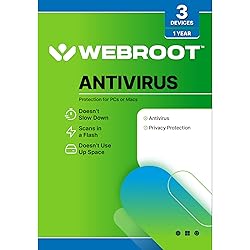In today’s digital age, where data breaches and privacy concerns are rampant, safeguarding personal and professional online activities has become crucial. This article delves into the essential role of Virtual Private Networks (VPNs) in enhancing cybersecurity, particularly for journalists and professionals who handle sensitive information. This article is based on insights from the Freedom of the Press Foundation, discussing the significance of VPNs in providing essential security and privacy for journalists.
What is a VPN?
A VPN, or Virtual Private Network, acts as a secure tunnel between your device and the internet. It masks your actual IP address, making your online actions more anonymous and secure. Essentially, a VPN creates a private network from a public internet connection, providing privacy and anonymity by allowing you to browse with virtual IP addresses.
Why Use a VPN?
Security on Public Wi-Fi
Public Wi-Fi networks, often found in coffee shops or airports, are convenient but notoriously insecure. Here, VPNs play a crucial role by encrypting your internet traffic, which protects your data from hackers who might be sniffing the network to steal sensitive information.
IP Anonymity and Location Privacy
Every device connected to the internet has a unique IP address. This address can be tracked back to your physical location, posing a significant risk, especially if you’re a journalist dealing with sensitive topics. A VPN hides your real IP address, displaying only the IP address of the VPN server, thus masking your physical whereabouts.
Safe Remote Access
For journalists and professionals who travel frequently or work remotely, VPNs ensure that they can access their organization’s network safely and securely, without exposing the network or the data it contains to the outside world.
Choosing the Right VPN
Not all VPNs are created equal, and choosing the right one is critical to ensuring your security. Here are key considerations when selecting a VPN:
Credibility and Reliability of the Provider
Many VPN providers are available, but not all are trustworthy. Some free VPN services have been caught logging user activity and selling this information. Always opt for a reputable provider known for respecting privacy and implementing strong security measures.
No-logging Policy
A no-logging policy means that the VPN provider does not store records of your internet activity. This is crucial for ensuring that your data cannot be sold or handed over to authorities under duress. Check that the VPN provider has a strict no-logging policy that is clearly outlined in their privacy policy.
Strong Encryption Standards
A VPN must use strong encryption to prevent data breaches and ensure that your internet traffic cannot be easily deciphered by unauthorized parties. Look for VPNs that utilize protocols like OpenVPN or WireGuard, which are known for their strong security features.
Audits and Certifications
To verify claims made by VPN providers, look for those that have undergone independent audits and received certifications regarding their security and privacy practices. These audits help confirm the provider’s claims and show their commitment to security.
Technical Considerations
Protocol and Encryption
The strength of a VPN’s security largely depends on its protocols and encryption methods. OpenVPN, for example, supports various security practices and is configurable for increased security. It is advisable to use settings such as SHA-256 for authentication, RSA-4096 for the handshake, and AES-256 for data encryption.
WireGuard Protocol
WireGuard is a newer protocol praised for its simplicity and high performance. It has fewer lines of code, which makes it easier to audit and less prone to security vulnerabilities compared to older protocols.
Challenges and Limitations
Despite their advantages, VPNs are not a one-size-fits-all solution for security and anonymity. VPNs do not protect against all forms of surveillance, and the laws in your jurisdiction might affect their efficacy. Moreover, a VPN does not provide complete anonymity; service providers still can see your original IP and, thus, your approximate location.
The Freedom of the Press Foundation mentions several VPN providers known for their robust security features and strong privacy policies. These include Mullvad, Mozilla VPN, IVPN, ProtonVPN, and Surfshark. Each of these VPNs has been recognized for offering configurations and settings that meet stringent security and privacy standards, making them suitable options for journalists seeking to protect their online activities.
In the realm of digital communication, a VPN is a valuable tool for enhancing security and privacy, especially for those in fields requiring confidentiality, like journalism. However, it is essential to choose a reputable provider and understand the limitations of what a VPN can do. For anyone dealing with sensitive information or concerned about privacy, a VPN is an important part of a broader cybersecurity strategy.



